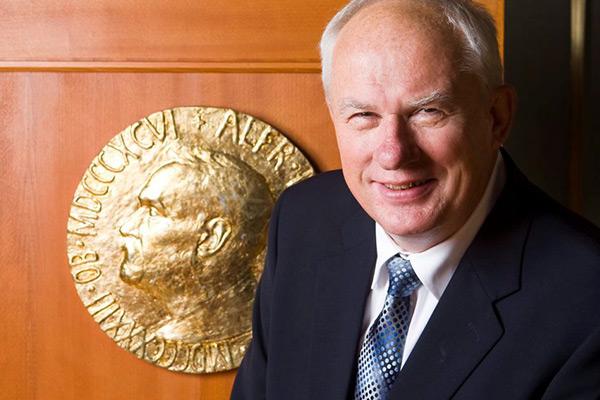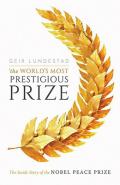
Many Ohio State events scheduled through April 20 have been canceled, rescheduled or reformatted. The safety of our community is our top priority. We will share updates as more information becomes available.
"The World's Most Prestigious Prize"

The Nobel Peace Prize is perhaps the world’s greatest honor and yet is not without controversy. As the author of The World’s Most Prestigious Prize admits, Mahatma Gandhi never received the Peace Prize, but Henry Kissinger and Le Duc Tho were so honored. Geir Lundestad approaches his subject from an insider’s perspective. The former director of the Norwegian Nobel Institute had access to the process by which a committee appointed by the Norwegian parliament weighed the sometimes-opposing claims of human rights and ending warfare. Prizes have been awarded as a rebuke to one system or another, including Martin Luther King Jr. (Jim Crow), Desmond Tutu (apartheid) and Andrei Sakharov (Soviet Communism). Only occasionally has the prize had a demonstrable effect on world events. Lundestad concedes that the Peace Prize, endowed by arms manufacturer Alfred Nobel, isn’t perfect. But unlike the Nobels for science, dominated by developed nations with extensive infrastructures, peace requires no well-funded laboratory but begins instead with the will to stand against violence.
About Geir Lundestad
Geir Lundestad is a Norwegian historian, who until 2014 served as the director of the Norwegian Nobel Institute when Olav NjØlstad took over. In this capacity, he also served as the secretary of the Norwegian Nobel Committee.
Born in Sulitjelma, Lundestad studied history at the University of Oslo and University of TromsØ graduating in 1970 with a cand.philol. degree and in 1976 with a doctorate respectively. From 1974 to 1990, he held various positions as Lecturer and Professor at the University of TromsØ before beginning his positions with the Norwegian Nobel Institute and Committee. Subsequently, he has been associated with the University of Oslo as an Adjunct Professor of International History. Lundestad spent several years in the United States as a research fellow at Harvard University and at the Woodrow Wilson Center in Washington D.C.
Lundestad is the author of many books and articles in English and Norwegian; covering a broad range of topics, including Norwegian history, the European community, the Cold War, and American foreign policy. He is a frequent commentator on Norwegian television and radio.
